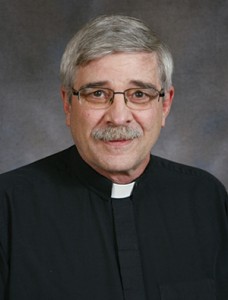Consider All The Works Thy Hand Has Made
by Timothy Teuscher

Rev. Timothy Teuscher
We who bear the name of Christ by virtue of our baptism are a new creation. And while we live in this world, we are not, as He says, to be “of the world” (John 17:14). St. John tells us not to “love the things of the world” (1 John 2:15). Likewise, St. Paul warns us against having “minds on earthly things” (Philippians 3:19).
At the same time, however, the First Article of the Creed reminds us that this world, even though it bears the effect of sin, is still a creation of God. As a result, all that is in the world—“clothing and shoes, food and drink, house and home, wife and children, land, animals, and all I have,” to use the words from the Small Catechism—are richly and daily given to us by God to support our lives. He does this “only out of fatherly, divine goodness and mercy, without any merit or worthiness in us.”
And so, not only the redemptive and sanctifying gifts of God (Second and Third Articles of the Creed), but also the creaturely or worldly gifts (First Article) are given to us freely out of His pure grace and goodness. Both of these gifts—the spiritual and the physical—have the power to draw us to God. “For all this,” as the Catechism goes on to say, “it is my duty to thank and praise, to serve and obey Him” (First Article), “that I may be His own and live under Him in His kingdom and serve Him in everlasting righteousness, innocence, and blessedness” (Second Article).
To be sure, it is only through the means of grace—that is, the Gospel and the Sacraments (Third Article)—that God has promised to be with us and for us to our present and eternal salvation. Only in Christ do we truly know who God is and the great scope of His love for us. Simply experiencing God’s goodness and greatness in the created world cannot by itself lead us to a true knowledge and faith in God.
When we dwell on and glory in the creation world alone, we are likely to miss the Creator.
There is certainly much good in creation, especially at this time of year in our vast nation called Canada: gardens flowering; birds chirping and fluttering amidst the leaves of the trees; a star-lit night sky; the reds and yellows of a sunset; abundance of produce and seafood in the market; fields of wheat that seem to stretch on forever; vineyards and orchards teeming with fruit… the list goes on and on! But when we dwell on and glory in the creation world alone, we are likely to miss the Creator.
The irony—because there is so much that is pleasing to our senses of sight, hearing, taste, smell, and touch in this world—is that there are more opportunities and temptations for people to make false religions out of this wonderful creation. Not all that different, by the way, than what our first parents did in the Garden. This is what St. Paul is getting at when he says of the sinful descendants of Adam and Eve, “Claiming to be wise, they became fools, and exchanged the glory of the immortal God for images resembling mortal man and birds and animals and creeping things” (Romans 1:22-23).

Photo: Flickr
That brings us to back to the First Commandment which deals, not with faith versus non-faith, but rather, with true faith versus false faith—faith in the one and true and only God, “the Maker of heaven and earth,” versus faith in the creation, in the things of heaven and earth. To be sure, God’s created world has the capacity to draw people into a sense of wonder and delight, even when acknowledgment of God as its Maker and Preserver is lacking or denied. It is, however, as G. K. Chesterton remarked: “The worst moment for the atheist is when he is really thankful and has nobody to thank.”
And here is where the Second and Third Articles of the Creed come into play. For this lovely and delightful created world is marred and corrupted by sin. We see it every night on the evening news. Life in this amazing world is fleeting at best and will soon pass away. But the Creator became a part of His creation; “the Word became flesh and dwelt among us” (John 1:14). And He did so in order to redeem this sinful, fallen world—to restore His creation back to the bliss and perfection God created in the beginning.
He even uses the things of creation to accomplish this great work—water, bread, wine, and words on a page in a book—“to call, gather, enlighten, and sanctify” people like you and like me, and “to keep us with Jesus Christ in the one true faith,” as the Catechism says. And He will continue to keep us in that faith until the Last Day comes, when “the creation itself will be set free from its bondage to corruption and obtain the freedom of the glory of the children of God” (Romans 8:21), and when there will then be “a new heaven and a new earth” (Revelation 21:1).
Martin Luther sums it up in these words: “Now if I believe in God’s Son and bear in mind that He became man, all creatures will appear a hundred times more beautiful to me than before. Then I will properly appreciate the sun, the moon, the stars, trees, apples, pears, as I reflect that He is Lord over and the center of all things.”
Rev. Timothy Teuscher is President of Lutheran Church–Canada.





